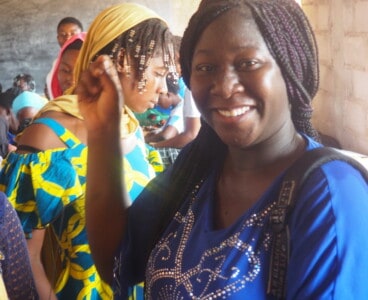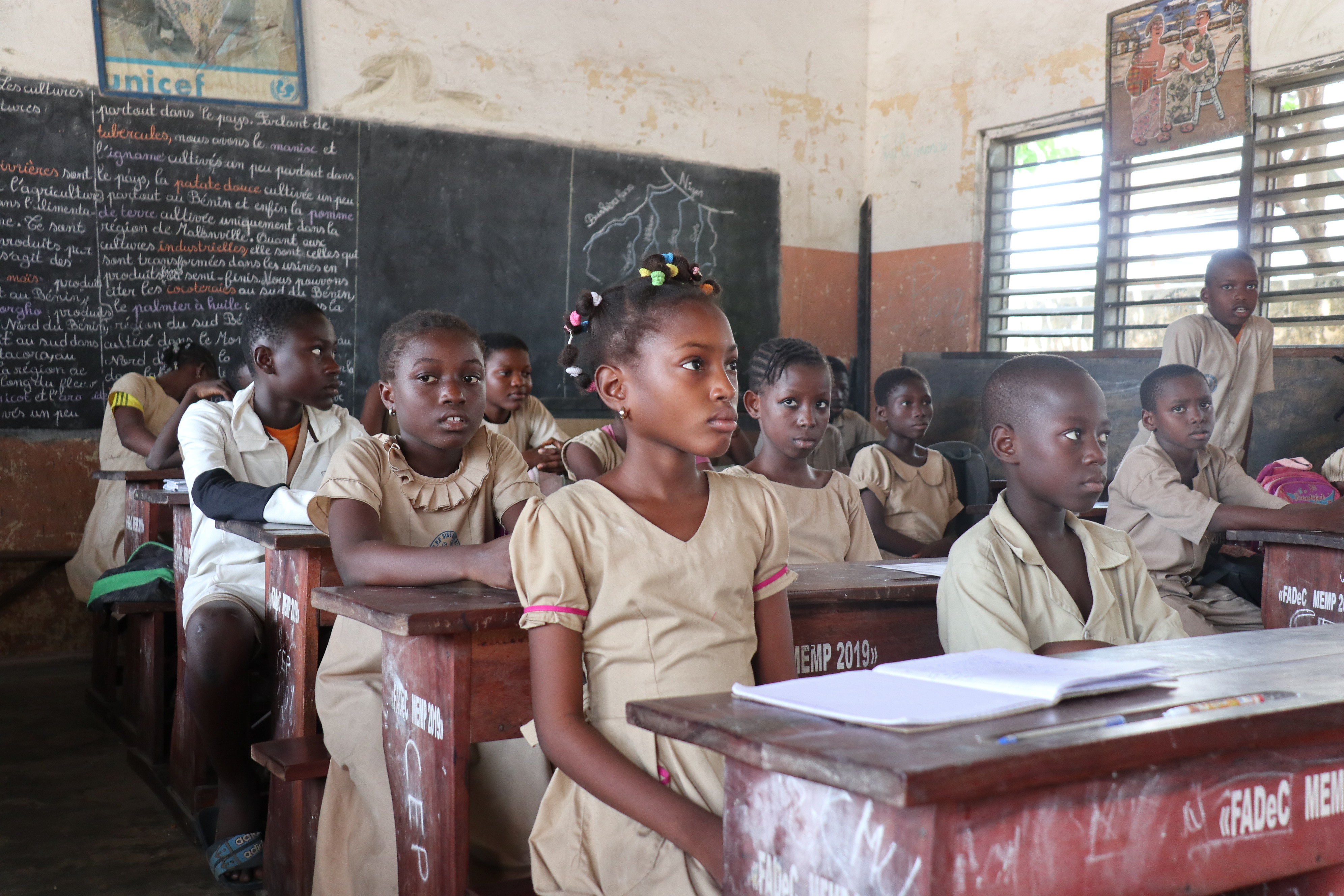On International Children's Rights Day (20 November), Action Education reminds us that being informed and participating are key to guaranteeing children's rights. In Burkina Faso, a number of the young girls we support are faced with numerous difficulties as soon as they start menstruating. The workshop we co-organised enabled them to look back at the inequalities and discrimination they suffer, and to show that speaking openly about taboos guarantees them access to their sexual and reproductive rights.
In Burkina Faso, getting and keeping girls in school, especially at secondary level, remains a challenge: parental poverty, early marriages, early and unwanted pregnancies and the priority given to boys are just some of the reasons why girls drop out. Puberty and the onset of menstruation are also reasons for dropping out. Abdominal pain, a general feeling of discomfort, the lack of latrines at school and mockery from boys mean that menstruation is a dreaded period for many young girls. For those who know nothing about puberty - and there are still many of them - the experience is even more frightening, even traumatic. Surprised by the onset of menstruation, young girls fear for their health and withdraw into themselves. Many do not have adequate protection because it is too expensive or unobtainable, and prefer to stay at home to avoid being stained and mocked in public.
"I had my first period in Year 5. I left school that day and when I got home, I saw drops of blood on my underwear. I wondered what was happening to me. I was really scared. My mother noticed my condition and wanted to know what was wrong, but I didn't want to talk to her. I confided in my sister. I was crying and telling her that I was going to die from the blood I was losing", she explains. Anne Marie LOMPO, 1st year student A4 at the Lycée privé Espoir de Léo

Breaking the taboo around menstruation by speaking out
To mark International Girls' Rights Day on 11 October, one of our partners, the Association pour la promotion de l'éducation des filles et l'autonomisation des femmes (APEFAF), organised an awareness-raising campaign on menstruation at the Lycée privé Espoir in Léo, the capital of Sissili province. Action Education through the SCOLFILLE project supported this activity, which is crucial to the well-being, hygiene, health and educational future of young girls. Mamou SANOU, head of the SCOLFILLE project for Action Education, helped to run the awareness-raising session.
Menstrual hygiene, sexual and reproductive rights
More than 350 girls from the sixth to the final year of secondary school took part in the awareness-raising session. The session gave the girls the opportunity to ask all their questions without taboos or mockery, and the facilitators were able to answer them accurately, constructively and openly. Allowing young girls to speak freely and openly, and encouraging them to participate and express themselves is essential: not only do young girls understand that there is no shame or taboo in talking about their bodies and the onset of puberty, but they also understand that they have the right to be informed and to participate in discussions on all issues that concern them.
Empowerment: making sanitary towels
This awareness-raising session, the gateway to more comprehensive education on sexual and reproductive rights, was followed by a training session on making sanitary towels from loincloths. Quality sanitary pads are still very rare, too expensive even, and difficult to obtain. So the workshop enabled the girls to stop having to endure and to be able to make their own sanitary pads so that they could go out and continue to go to school without any problems or shame. In this way, they have acquired a decisive and essential ability to act, both to guarantee their health and hygiene and to continue going to school without fear of having to miss at least 1 week a month.






